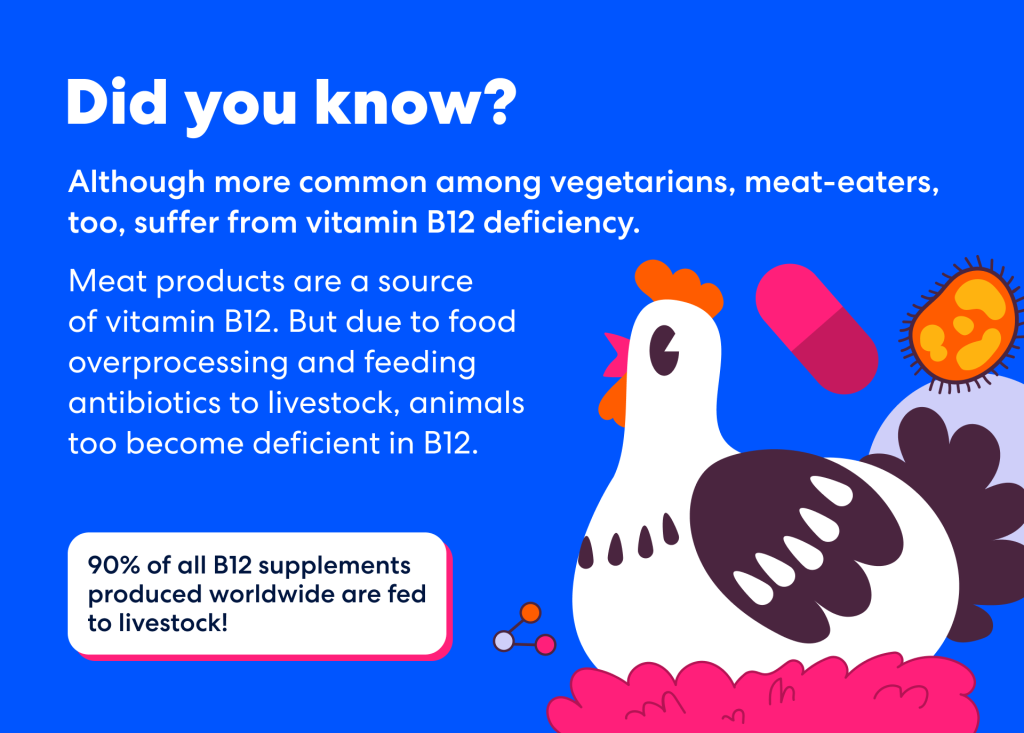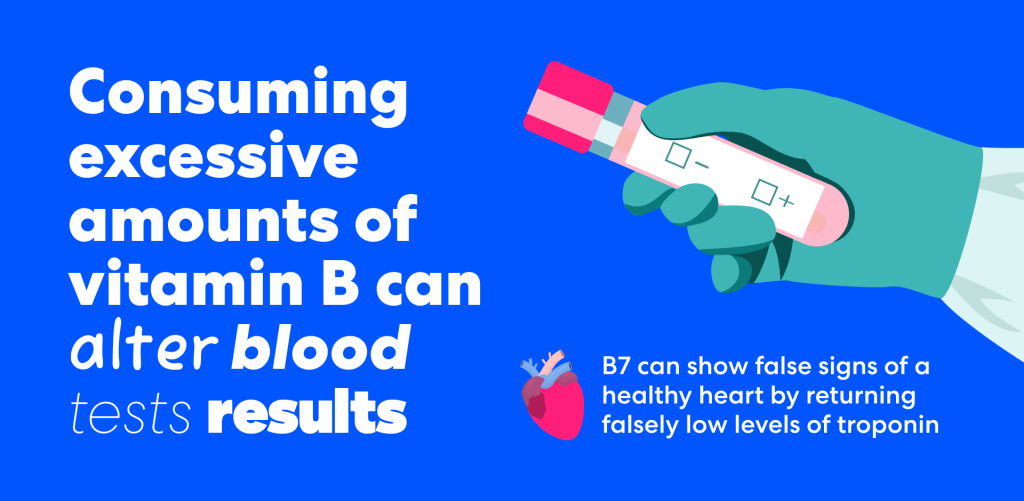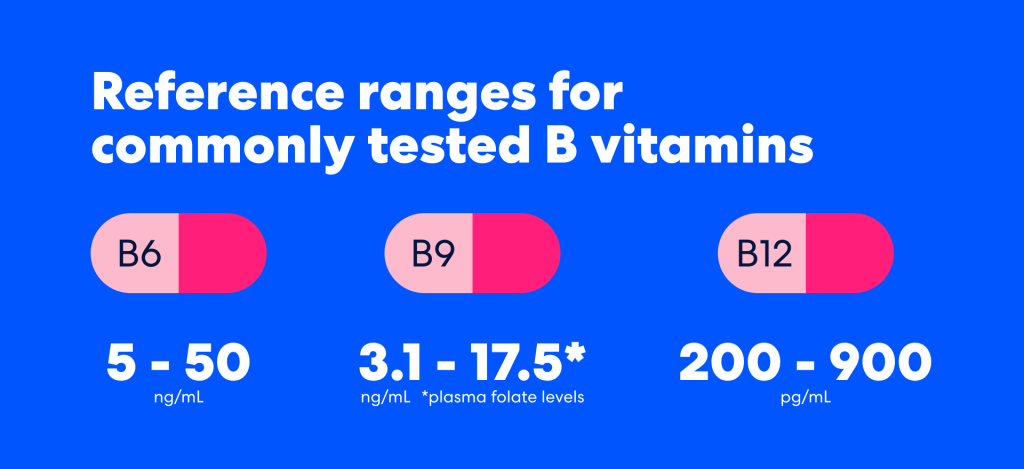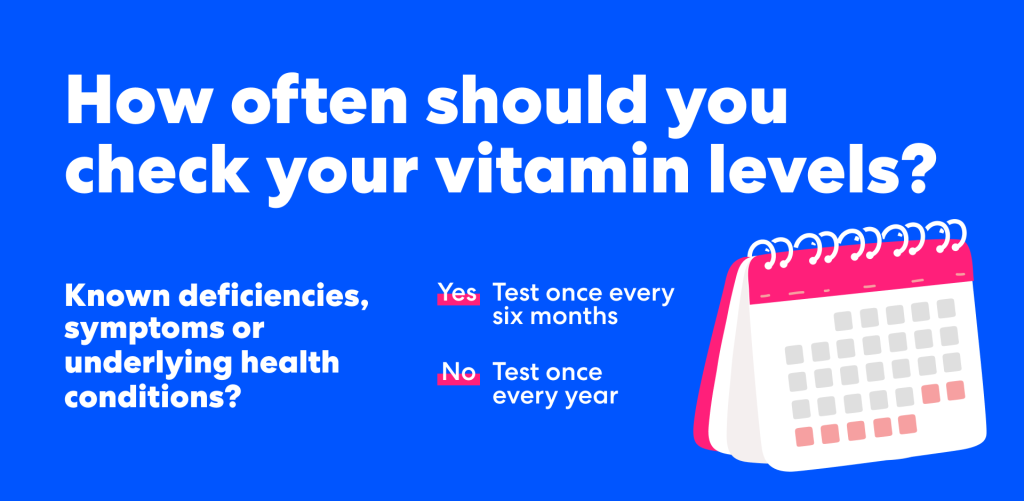This article has been medically reviewed by Dr. Varun B R, MBBS, MD (Internal Medicine), MRCP (UK), CCEBDM
According to recent studies, approximately 75% of India’s population shows signs of vitamin B12 deficiency. Given the size of the problem, it’s no wonder that vitamin B is quickly becoming the new darling of health and nutrition enthusiasts.
As a key player in several biochemical processes, vitamin B deserves our full attention. But getting the science right can be challenging with so much information out there.
The leading causes of vitamin B deficiency are smoking, alcohol consumption, use of antiacid medications, and, of course, eating habits, including vegetarianism.

As our awareness of the risks and benefits associated with vitamin B grows, so does the market for vitamin B supplements. In 2020, the market value of B complex and B12 vitamin products in India amounted to a whopping 281 million US dollars.
Today, vitamin B supplements are available in various forms, including injectable jabs, tablets and nasal sprays. B vitamins are added to your morning cereals, plant-based milk and even your shampoo. The question is: are these products the best way to prevent deficiency? How safe and effective are they?
Let’s get to it!
Why Vitamin B Deserves Attention
Nearly three out of four Indians show signs of vitamin B12 deficiency. This figure alone explains why vitamin B has become central to conversations about nutrition and preventive health.
Unlike a single nutrient, vitamin B complex refers to a group of eight essential vitamins. These vitamins influence various aspects of the body, including energy metabolism, nerve function, immunity, and red blood cell production. Since they are water-soluble, the body does not store them for a long time. That means your diet needs to supply vitamin B regularly.
What Is Vitamin B Complex?
The complex is made up of eight distinct vitamins:
| Vitamin | Common Name | Primary Role |
| B1 | Thiamine | Converts food into energy, supports nerves |
| B2 | Riboflavin | Energy release, skin and eye health |
| B3 | Niacin | Cholesterol regulation, digestive health |
| B5 | Pantothenic acid | Hormone production, metabolism |
| B6 | Pyridoxine | Brain chemicals, red blood cell production |
| B7 | Biotin | Hair, skin, and nail health |
| B9 | Folate | DNA synthesis, fetal growth |
| B12 | Cobalamin | Red blood cells, nerve repair |
Together, these vitamins act in synergy. A deficiency in one can affect the way others function.
Key Health Benefits
1. Energy Production
Several B vitamins (B1, B2, B3, B5, B6, and B12) work as coenzymes that help the body extract energy from carbohydrates, fats, and proteins. While they do not create energy on their own, without them, the body cannot use food efficiently.
2. Nervous System and Brain Health
- Vitamin B12 plays a central role in nerve fibre repair.
- Vitamin B6 helps produce serotonin and dopamine, brain chemicals linked to mood balance.
- Adequate levels of these vitamins are linked with sharper memory and better cognitive health.
3. DNA and Growth
Folate (B9) supports DNA synthesis and cell division. This is especially critical during pregnancy to prevent congenital defects.
4. Skin, Hair, and Nails
Biotin (B7) is a popular nutrient in beauty supplements. It contributes to keratin formation, which helps maintain healthy hair and stronger nails.
5. Immunity and Blood Formation
- B6 supports the production of antibodies and immune cells.
- B12 and folate are necessary for red blood cell production, preventing anaemia.
6. Cardiovascular Support
Niacin (B3) contributes to healthier cholesterol levels by improving the ratio of HDL (good cholesterol) to LDL (bad cholesterol).
Recommended Daily Intake
The Food Safety and Standards Authority of India (FSSAI) suggests approximate daily requirements:
| Vitamin | Adult Requirement |
| B1 | 1.2 mg |
| B2 | 1.3 mg |
| B3 | 16 mg |
| B5 | 5 mg |
| B6 | 1.3 – 1.7 mg |
| B7 | 30 mcg |
| B9 | 400 mcg |
| B12 | 2.4 mcg |
Note: Pregnant and lactating women require higher amounts of folate and B12. These should be guided by medical advice.
Best Sources of Vitamin B
Vitamin B is widely distributed in food, but not always in equal amounts.
- Animal sources: Meat, fish, poultry, dairy, and eggs are excellent, particularly for B12.
- Plant sources: Whole grains, legumes, seeds, nuts, and leafy greens are rich in B1, B2, B3, B6, and folate.
- Fortified foods: Breakfast cereals, plant-based milk, and nutritional yeast provide additional vitamin B for those following vegetarian or vegan diets.
Note: Cooking methods matter. Since these vitamins are sensitive to heat, light, and water, overcooking can lead to nutrient loss. Steaming, blanching, or grilling helps preserve more vitamins than prolonged boiling.

Causes of Deficiency
- Poor diet: Vegetarian and vegan diets often lack B12, but even non-vegetarians may fall short due to processed food consumption.
- Absorption problems: Conditions like Crohn’s disease, celiac disease, or gastric surgeries limit absorption.
- Medications: Antacids, certain diabetes medicines, and anticonvulsants interfere with vitamin absorption.
- Ageing: Reduced stomach acid production in older adults affects B12 absorption.
- Alcohol consumption: Excess intake interferes with the absorption of thiamine (B1) and other vitamins.
- Increased demand: Pregnancy, breastfeeding, and some chronic illnesses increase the need for B vitamins.
- Medical treatments: Dialysis and some cancer therapies deplete vitamin B levels.
Symptoms of Deficiency
Since each vitamin has different roles, symptoms vary, but commonly include:
- Persistent fatigue and weakness
- Tingling or numbness in the hands and feet
- Poor memory or difficulty concentrating
- Cracks at the corners of the mouth
- Pale or yellowish skin
- Hair loss or brittle nails
Note: Severe or prolonged deficiency can lead to conditions such as beriberi (B1), pellagra (B3), and megaloblastic anaemia (B9 and B12).
Testing and Diagnosis
- Routine blood tests usually include vitamin B12.
- Folate and B6 are tested when anaemia or malabsorption is suspected.
- For healthy adults, annual testing is adequate.
- For those with known deficiencies or absorption issues, testing every six months is recommended.
While vitamin levels can vary depending on factors like age, gender, and specific testing methods, as a general guideline, your blood test results should be within these ranges:

While vitamin B12 is part of routine testing, vitamins B6 and B9 are tested only in case of specific concerns, such as malabsorption or anaemia.
Remember that while blood tests can provide valuable information, they should be considered alongside your medical history, eating habits and lifestyle choices to determine what causes a vitamin B deficiency and how to treat it. Interpreting blood test results in consultation with your doctor is the best way to ensure you receive an accurate diagnosis.
In the absence of symptoms or underlying health conditions, a yearly test is sufficient. In case of known deficiencies, testing your vitamin levels once every six months is recommended.

With so many choices out there, it may be difficult to know which supplement is best for you. Your doctor can help assess your specific nutrient needs, recommend appropriate formulations, and determine the correct dosages based on your health status and goals
Conclusion
Vitamin B complex is vital for energy, nerve function, immunity, and red blood cell formation. Although supplements can help in specific cases, they should not replace a nutrient-rich diet. Whole foods remain the best long-term strategy for maintaining adequate vitamin B levels.
At Even, our doctors and nutritionists can guide you in assessing and correcting deficiencies in ways that suit your lifestyle and medical history. If you are not yet a member, joining gives you access to ongoing care and professional advice tailored to your needs.



